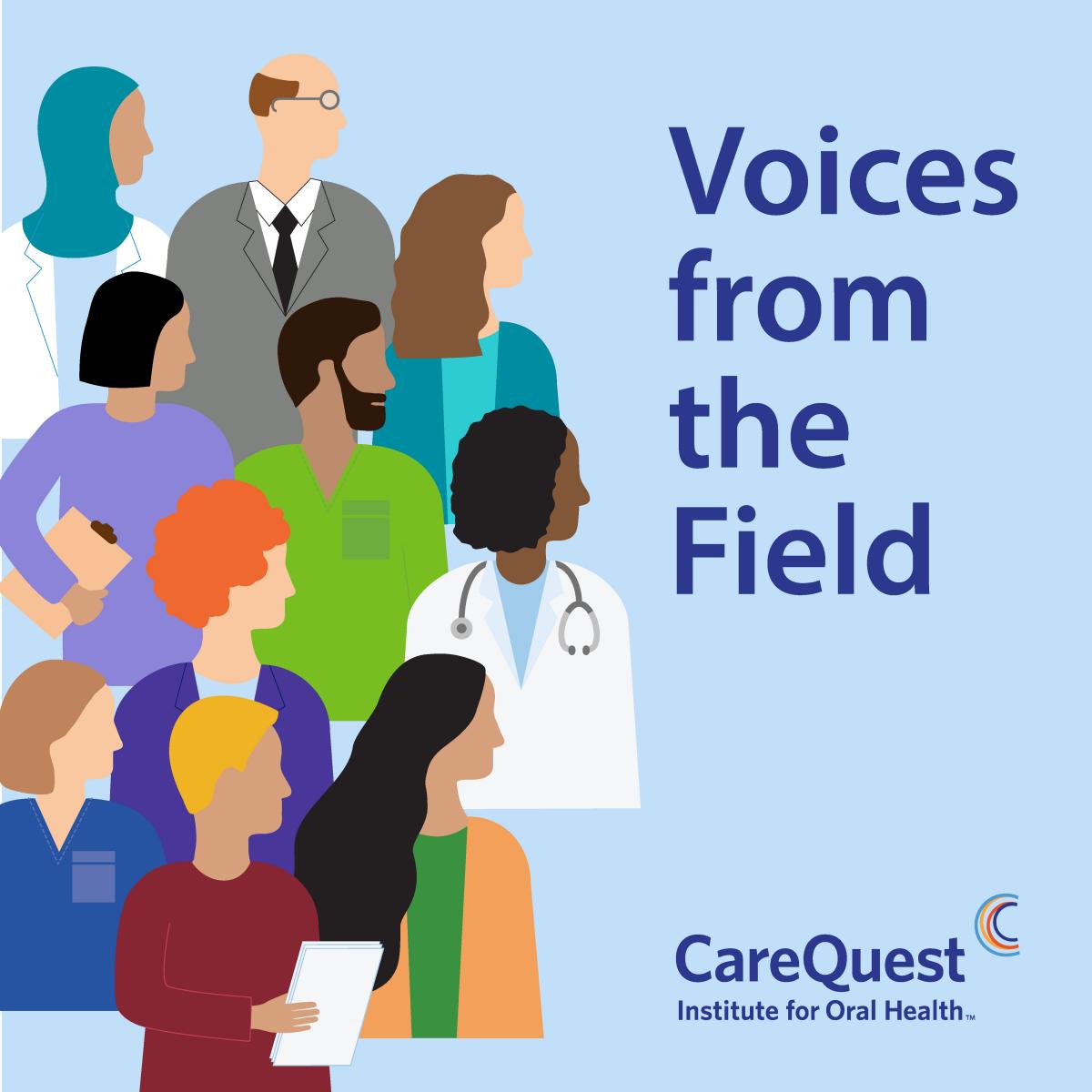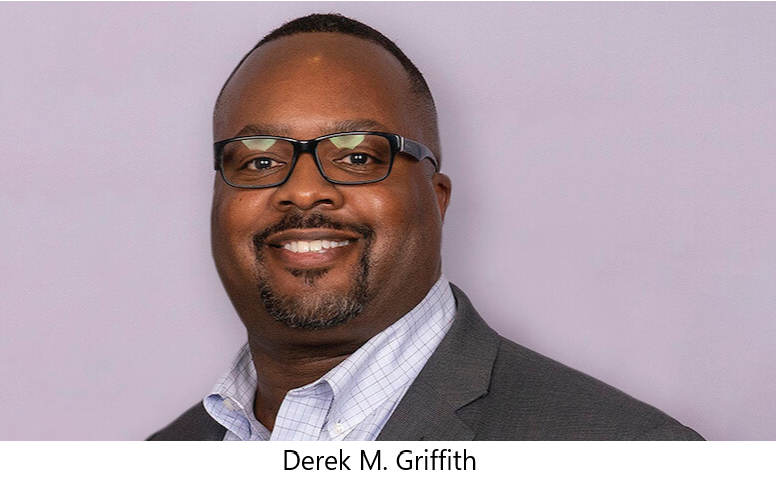Enter your email to receive the CareQuest newsletter:
September 28, 2021
Derek M. Griffith is a founding co-director of the Racial Justice Institute, founder and director of the Center for Men’s Health Equity, and professor of Health Systems Administration and Oncology at Georgetown University. He also is a contributor to and editor of Men’s Health Equity: A Handbook and Racism: Science and Tools for the Public Health Professional.
Trained in psychology an d public health, Griffith has published more than 140 articles on pursuing racial, ethnic, and gender equity in health, and addressing racism as a determinant of health. He received the Tom Bruce Award from the Community-Based Public Health Caucus of the American Public Health Association, and he was named by the Community of Scholars one of Cell Mentor’s 1,000 Inspiring Black Scientists in America.
d public health, Griffith has published more than 140 articles on pursuing racial, ethnic, and gender equity in health, and addressing racism as a determinant of health. He received the Tom Bruce Award from the Community-Based Public Health Caucus of the American Public Health Association, and he was named by the Community of Scholars one of Cell Mentor’s 1,000 Inspiring Black Scientists in America.
Griffith, who is a speaker on the CareQuest Institute webinar “Building Antiracist Policies and Practices into Health Care Settings,” took time to share his thoughts on the connection between structural racism and health outcomes. He explains how witnessing racism as a child helped shaped his career path, what he’s learned about the connection between race and health outcomes, and how individual health care providers and practices can work toward achieving greater health equity.
Tell us a bit about your background. Was there a particular experience or moment that led you down this career path?
I grew up in Atlanta, Georgia, and I had several experiences that, when I look back, were incidents of racism. Some were overt and others were more subtle experiences with classmates and teachers. I didn’t understand why someone had such strong feelings about me, someone they had never met. Experiences like that led me to major in psychology and African American studies, which provided me the language and historical context to make more sense of these and other events. I didn’t really know what I wanted to do with my career, but I’ve been fortunate and blessed to be able to pull this together. But it certainly was not something I set out to do.
When did you decide racial justice and health equity would be focal points of your work?
My formal training is in clinical-community psychology with a master’s and PhD. One of the things I found difficult about dealing with issues of race and racial justice is that in psychology, the unit of change is one person at a time and the pace of change is small and incremental. I also noticed trying to measure things that are difficult to measure like self-esteem and attitudes made it difficult to define success. When I discovered health, I realized who lives, who dies, how long somebody lives, and when somebody dies were very hard outcomes. Looking at this issue and understanding why this differs by race, when there is no biological reason for differences in health outcomes, fascinated me.
And now you’re founding co-director of the Racial Justice Institute at Georgetown. What is that? Why does it exist?
It is the fulfillment of a promise the president of Georgetown made a few years ago. Georgetown had started to reckon with their history of having sold slaves to keep financially solvent and wanted to create a research institute that would basically help prevent the norms, practices, and policies that made slavery possible from ever happening again. We’re looking at the scholarly ways we need to bring together the different disciplines to create justice, a true and fair opportunity for all to be healthy and well. We know the solutions will not come from any one disciplinary or scholarly area. We need the complementary perspectives that different disciplines provide to address the combination of patterns and processes we call structural racism. We’re developing a concrete vision, an identity, and are creating a three to five-year plan we can adjust, adapt, and re-evaluate going forward.
Homing in on your area of expertise, how does racism influence health outcomes?
Racism basically creates a structure and context that disadvantages some groups and advantages others by race, and it drains the resources we have as a nation for all to achieve health and well-being. It triggers processes in the body that lead to biological aging by creating different obstacles to being able to take care of your health across education, housing, criminal justice, health care, and other sectors of society. Racism creates things like redlining and food deserts. In some cases, they are characterized as food swamps when you have an overabundance of unhealthy food that would lead to oral health issues. It is an effort to explain why all of these aspects of life seem to advantage and disadvantage the same people despite the differences in communities and sectors. Racism basically affects every aspect of life that can influence health.
have as a nation for all to achieve health and well-being. It triggers processes in the body that lead to biological aging by creating different obstacles to being able to take care of your health across education, housing, criminal justice, health care, and other sectors of society. Racism creates things like redlining and food deserts. In some cases, they are characterized as food swamps when you have an overabundance of unhealthy food that would lead to oral health issues. It is an effort to explain why all of these aspects of life seem to advantage and disadvantage the same people despite the differences in communities and sectors. Racism basically affects every aspect of life that can influence health.
Why should oral health professionals care about racism?
With any kind of health care provider, when your patients come in and have poor health, you want to be able to help them fix and prevent problems. Racism helps to identify ways some patients may not have the same opportunities as others to engage in preventive care or to fix problems once they occur. It’s certainly not the only reason, but it helps to explain why when we zoom out from individuals to populations, we see remarkably similar patterns over time and across locations.
We need to see patients who have different identities and try to give a fuller, richer, and accurate understanding of their obstacles to health. Some are certainly within their control, but many behaviors are shaped by the environments where they live.
Oral health providers are typically not some of the first people thought of in conversations about how to achieve optimal health for all Americans. Yet I think they have a unique perspective and can play an important role in local and national conversations and efforts.
What can an individual provider (oral health or otherwise) do if they are interested in combating structural racism in our health system?
There are what providers can do personally, and what they can do professionally. Personally, it is being open to learning and understanding, and being comfortable with the concept of racism. Unfortunately, race is a very useful proxy for those who are likely to have better or worse outcomes in our society despite individual gifts, motivation, and character. Personally, providers can try to open themselves up to opportunities to learn more.
From a professional standpoint, within a practice, it’s about recognizing every patient is not going to have the same opportunities and resources. While you should not assume their life circumstances or resources based on their race or other factors, it is helpful to create a common set of questions to ask all about the barriers and resources they have to adhere to your recommendations and guidance. Providers should avoid not giving certain patients options because they assume they may not have the economic or other resources to follow them. Even if they cannot, try to work with patients to come up with creative and effective solutions to overcome the barriers they have to do what you know they need to do to have good oral health. Simply make it a practice to treat all your patients the same. As basic as that sounds, try not to lean on proxies like race. Providers need to make a practice of asking questions, so it doesn’t limit patients’ options to be able to achieve their best health.